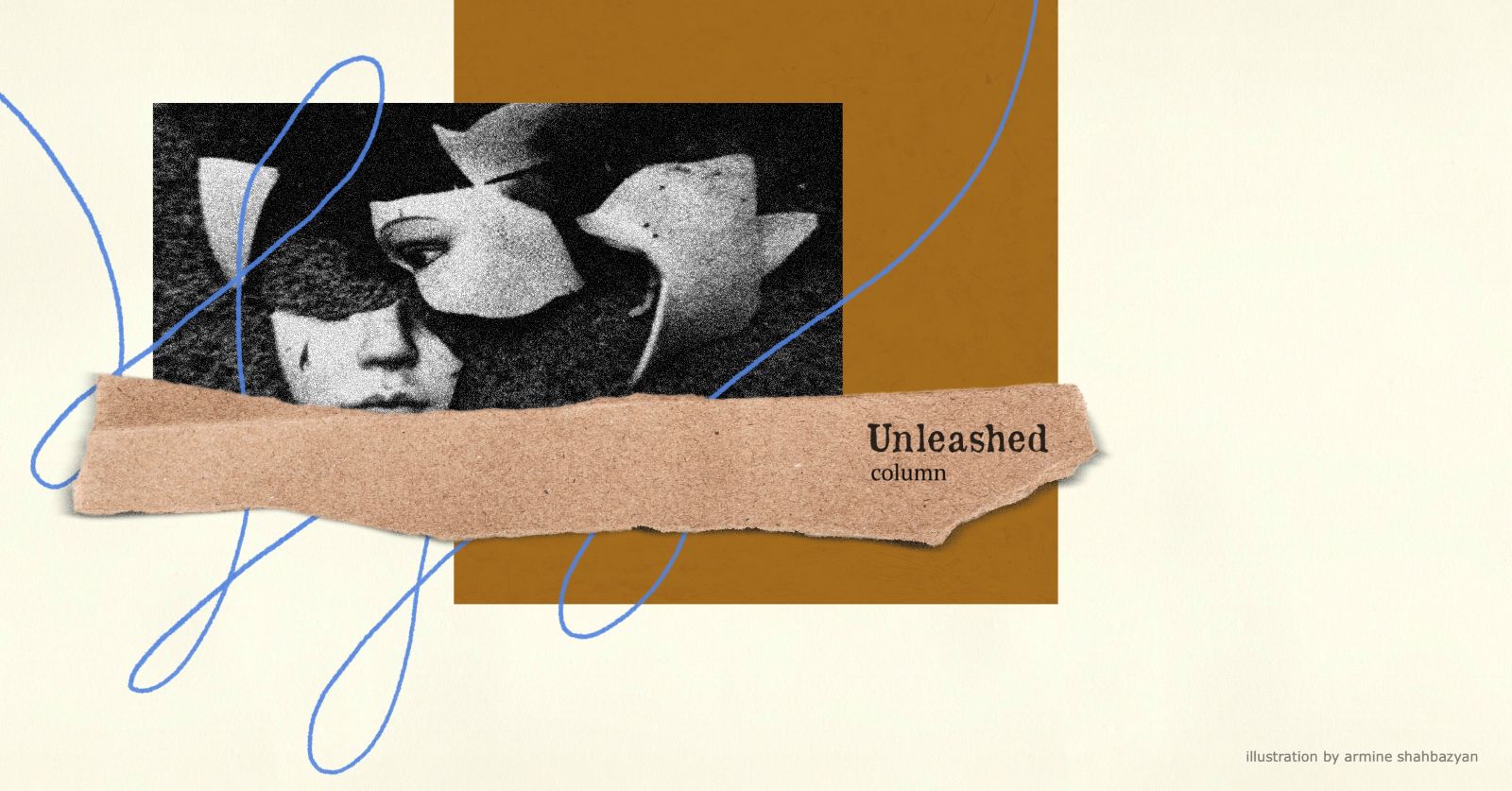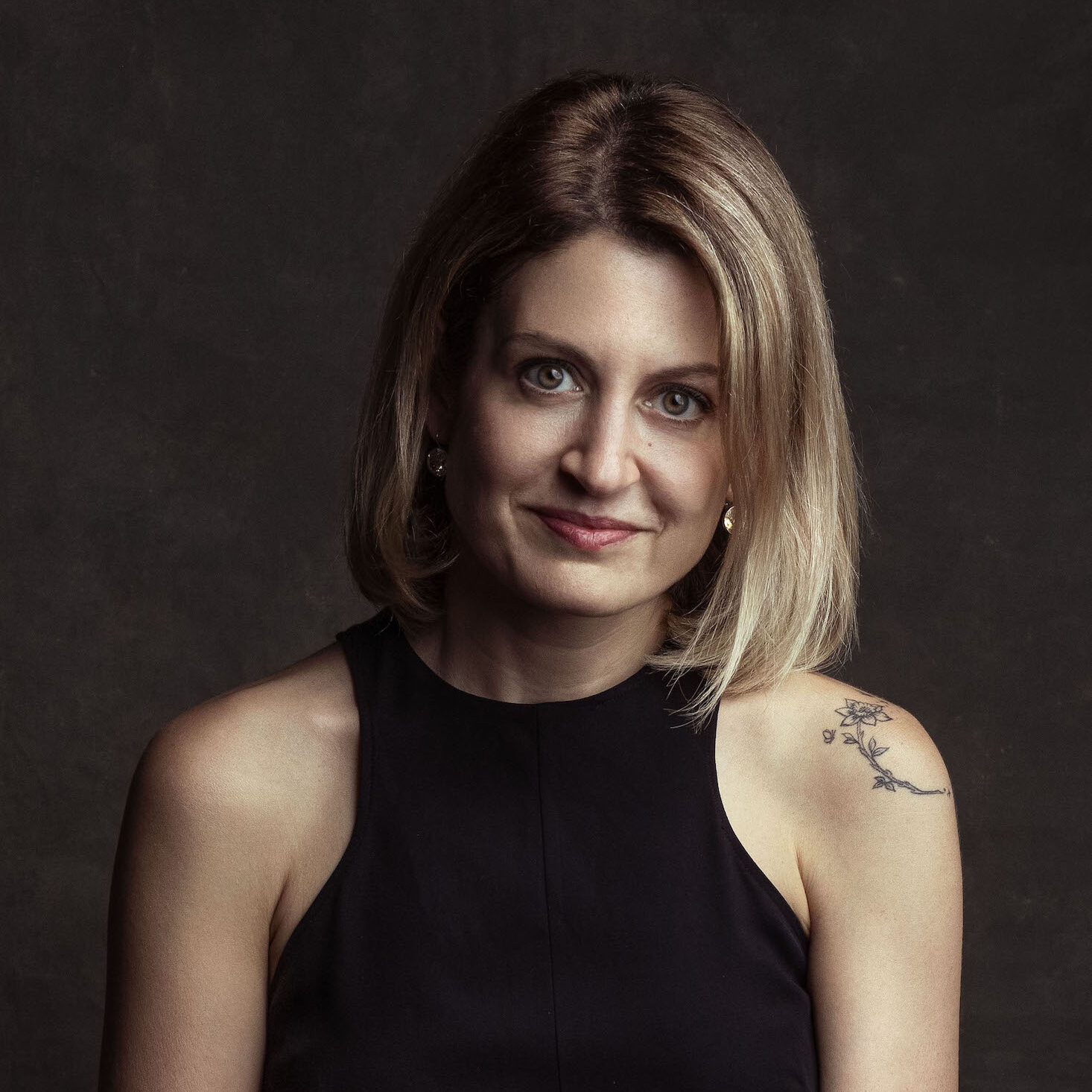

Last week, I sat in front of a room full of dignitaries, ambassadors, senior experts, and high-level officials from all over the world to moderate a panel. It was the second edition of the Yerevan Dialogue, and the subject of my talk—global justice and the rule of international law—is one I’ve specialized in for nearly two decades. I had done the research, formulated the questions, anticipated the answers, and rehearsed every line. I knew the material inside out.
I’ve moderated panels like this more times than I can count. But still, in the moments leading up to the session, as I sat waiting and reviewing my notes, the anxiety that had been quietly creeping in all morning suddenly washed over me. That familiar, acidic voice rose in my mind: Who do you think you are?
Then, as I took the microphone to open the panel, my heart began to race. And for a brief, disorienting moment, I felt like a complete fraud, all over again. Not because I wasn’t ready. Not because I wasn’t qualified. But because, somehow, I still struggled to believe I was.
That’s the cruel paradox of imposter syndrome: it doesn’t care how hard you’ve worked, how much you know, or how often you’ve succeeded. It’s the dormant demon that always seems to wake up at the worst possible moment, just to cast doubt on your competence, even when the evidence solidly proves otherwise.
For years, I thought I could silence it with achievements. If I just earned one more accolade, landed one more promotion, survived one more war zone, wrote one more op-ed, maybe I’d finally feel legitimate. But confidence, I’ve come to learn, doesn’t come from external validation. Chasing it that way is like chasing a mirage: always just out of reach, no matter how far you run.
Real confidence comes from cultivating a deep, internal knowing of your value, your capacity, and your worth. It’s the unwavering belief that even if you don’t know everything—which of course you don’t—you have the tools to learn, adapt, and rise to the occasion. It’s a skill. One that must be practiced deliberately, patiently and persistently.
The same applies in relationships. Just as I struggled to feel legitimate in my professional life, I spent too many years thinking I had to earn love. If I were just a little more accomplished, a little more beautiful, a little less intense, maybe then I’d finally be accepted, welcomed, desired even. Maybe then, I’d finally feel like I belonged. That inner script—the same one that told me I wasn’t enough in class, or in the office, or on stage—was running in the background of my personal life.
But again, real confidence isn’t about proving anything. What it really comes down to is showing up—fully, vulnerably and unapologetically—as yourself, over and over again. It’s knowing that you always have your own back, no matter how you come across or how you are received. And it’s trusting that that is enough.
Okay, wouldn’t it be nice if I just stopped here? It’s a clean place to land: resolved and empowering. But it’s not the whole story.
Because when you add the Armenian layer, things get a little complicated.
Being Armenian has had a distinct and often dissonant undertone to how I understand myself: how I hold confidence, how I question it, and how I express it.
Since moving to Armenia and immersing myself fully in the culture and collective ethos, I’ve come to see up close the deep and tangled narrative that runs through the Armenian psyche—one I’ve encountered again and again in conversations and in the assumptions that shape how we see ourselves and our place in the world.
It’s a mixture of pride, pain and perpetual insecurity. A sense that we are the inheritors of an ancient, noble legacy, and yet forever victims of geopolitical betrayal. That we are uniquely brilliant, but also uniquely misunderstood. That we are exceptional—and therefore, exempt.
This belief in Armenian exceptionalism can be so seductive. It flatters our identity, soothes our wounds, and rallies us in times of crisis. But it can also limit us. Because if we see ourselves as inherently exceptional, we stop striving to actually become it. If we believe the world owes us recognition simply for existing, we lose the drive to truly live up to our full potential.
Real excellence, whether personal or national, requires discomfort. It demands that we hold up a mirror to our flaws, embrace feedback, and evolve. It requires, above all, confidence. The kind that doesn’t rely on mythology or martyrdom, but on a deliberate, sometimes messy progress.
That’s not an easy mindset to cultivate when you’ve been historically trampled. I get it. As descendants of genocide survivors, we carry that inherited trauma in our very bones. And that trauma is being re-lived today, in real time, through the Armenians of Nagorno-Karabakh, who have been violently uprooted, displaced, and silenced. But trauma is a reality to be acknowledged and healed, not weaponized as an excuse to stay stuck.
I’ve met Armenians who are doing extraordinary work around the world. So many scientists, diplomats, artists and entrepreneurs, among others, are shaping the future in spaces where Armenians have traditionally been absent. But I’m sure that almost every one of them, like me, has had to wrestle with that inner voice that says: Who do you think you are? Or, worse: You don’t belong here. And then, with the outer voice that says: But you’re Armenian. That should be enough.
No, it shouldn’t be enough. And it’s not enough. Not anymore.
To be sure of ourselves, individually and collectively, we need to let go of the safety blanket of self-congratulation and step into the arena with humility and hunger. We need to reward merit, not proximity.
Imagine if more Armenians approached the world with the poise of the prepared rather than the bitterness of the ignored. Imagine if we didn’t bristle at criticism, but invited it as a catalyst for betterment. Imagine if our diplomacy, our innovation, our arts, and our economic ingenuity, were driven not just by the need to be seen as excellent, but by the commitment to actually become it.
Armenia has a mission, and we are all a part of it. It’s time we pursued it with clear eyes, open minds, and a practiced confidence in our ability to grow, to lead, and to matter—not because of what we’ve endured, but because of what we’re here to create and contribute.
We Armenians often lift each other’s successes up, and that’s a beautiful thing. But too often, we also tear each other down for our failures, breeding fear, hesitation, and shame in ever trying again. That tension isn’t just around me; I’ve felt it within me. I’ve had to learn the hard way that real confidence doesn’t come from constant affirmation or flawless execution, nor does it come from bullying or berating yourself for any shortcomings. It comes from showing up again after you fall, or fail, which you inevitably will. And it comes from pushing through the doubt, because the mission matters more than the ego.
So, when the voice whispers: Who do you think you are?—I answer now, with certainty: I’m still learning. Always striving. And I belong.
See all [Unleashed] articles here
Listen to Sheila’s personal reading of “To Be Sure”.

Sheila Paylan is an international human rights lawyer and former legal advisor to the United Nations. Now based in Yerevan, she regularly consults for a variety of international organizations, NGOs, think tanks, and governments.


I see you sister 👩